Terrorism
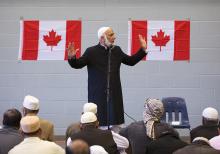
The government of Quebec has introduced two bills, both aimed at Muslims.
The first would attempt to stanch the radicalization of Muslim youth through a 59-point plan that includes expanding the powers of Quebec’s Human Rights Commission to probe hate speech — enhancing training for police and teachers to recognize signs of radicalization, dedicating a police unit to patrol social media, and establishing a hotline staffed by social workers to advise families and friends of suspected extremists.
THE SO-CALLED WAR on terror has dangerous and shifting financial front lines. Since the 9/11 attacks, a series of “anti-terrorism financing laws” have been enacted that allow the government to designate certain charities as “terrorist” organizations or as financing terror. The government can effectively shut down organizations without ever bringing criminal charges or providing evidence against them, according to the ACLU. “As a result,” it reported, “American Muslim organizations and individuals are unfairly targeted.”
In addition to fostering Islamophobia in the larger society and fear within Islamic and other faith communities, overzealous application of these laws can actually inhibit the war on terror. It risks crippling the very Islamic charities that can effectively combat radicalization in places vulnerable to extremists. Stephen Bubb, head of a charity network in Britain, where financial terror laws are similar to those in the U.S., has emphasized “sensible, credible, proportionate regulation” of Islamic charities. “I have witnessed firsthand the difficulties faced by organizations in Pakistan fighting the same battle that we are: for security, for a better way of life, and for a better future for our children,” said Bubb.
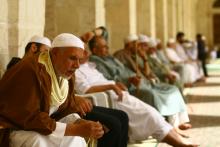
On May 3 in Garland, Texas, two gunmen opened fire at a “draw the Prophet Muhammad” contest sponsored by the American Freedom Defense Initiative, listed as an extremist group by the Southern Poverty Law Center. Police shot and killed the two gunmen. A security guard was injured. Most Muslims consider images of the prophet highly offensive, as Islam prohibits them. The attack comes almost four months to the day that four cartoonists at the French weekly Charlie Hebdo were killed by extremists offended at the magazine’s satirical depictions of the prophet.
Why do images of the founder of Islam — even cartoons drawn by amateurs — incite so much anger in some people that they are motivated to violence?

Everything must change.
Injustices around the world and here at home are coming to light despite a long, willful blindness. Half a world away, the long-muted voices of the victims of American military policy were allowed to break through the wall of propaganda and infotainment used to keep them hushed. A recent New York Times report reveals one of the worst-kept (actually un-kept, but vastly underreported) secrets of our government: that we often do not know who we are killing with drones.
And at home, in Baltimore, the death of Freddie Gray in police custody has caused long-simmering tensions – born of institutionalized segregation, nearly inescapable poverty, and a scourge of police brutality – to erupt in an uprising of passionate resistance, with destruction punctuating otherwise peaceful marches. Media coverage has given far more attention to the “riots” than to the systemic violence that has kept so many African Americans, not only in Baltimore but throughout the country, living in poverty and insecurity.
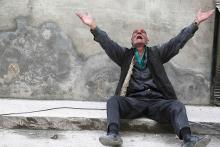
Just a few decades ago, Aleppo was home to about 170,000 Catholics, about a third of the city’s population. Since the war broke out, Jeanbart has seen a third of his flock reduced by death, dislocation, and emigration while Aleppo’s Muslim population has soared.
The threat of annihilation is constant, as Aleppo has become the main battleground between the government forces of President Bashar Assad and a motley assortment of rebels who include growing numbers of fighters affiliated with the fundamentalist terrorism of the Islamic State group.

The arrests of six Minnesota men accused earlier this month of attempting to join the Islamic State group highlights an unprecedented marketing effort being waged by the militant group in Iraq and Syria, U.S. law enforcement officials and terror analysts said.
It’s a campaign that is finding resonance from urban metros to the American heartland.
“This is not so much a recruitment effort as it is a global marketing campaign, beyond anything that al-Qaida has ever done,” said a senior law enforcement official.
The official, who is not authorized to comment publicly, said the Islamic State’s slick multimedia productions, its use of social media, and personal “peer-to-peer” communication are proving to be effective parts of a sophisticated program aimed at the West.
“I don’t think there has been one case in which we haven’t found some connection to the videos or other media the group has produced,” the official said.
Federal authorities have identified more than 150 U.S. residents who have sought to join the ranks of the terror organization or rival groups in Syria. There is evidence that about 40 of those have traveled to the region and returned to the U.S. Most have been charged; an undisclosed number are free and subjects of intense surveillance, the senior official said.
The smallest subset of the group, an estimated dozen, represents those who have actually joined the fighting ranks.
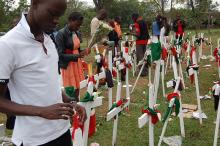
Faced with a fierce enemy driven by Muslim extremist ideology, the government has cracked down on funding for al-Shabab, the Somali group that claimed responsibility for killing 148 mostly Christian students at Garissa University College a week ago.
This week, Kenya froze the accounts of 85 groups and individuals, including bus companies and Muslim rights organizations, allegedly linked to the group. It has closed down one hotel in Eastleigh, a neighborhood in the Nairobi commonly known as Little Mogadishu because of its large concentration of ethnic Somalis.
But the freeze on Muslims for Human Rights and Haki Africa, two nongovernmental organizations, raised questions, since they are known for their work on improving the lives of Kenyans and fighting for human rights of all citizens.
“I am amazed that these human rights organizations are believed to have been supporting terror,” said Sheikh Juma Ngao, the national chairman of the Kenya Muslim National Advisory Council.
“I think the government needs to provide some evidence.”
The destruction and looting of art and historical sites in Syria is "the worst cultural disaster since the Second World War,” according to anthropologist Brian L. Daniels.
The human losses are devastating: At least 210,000 people have died in the ongoing battle between the Assad regime and the Syrian rebels. ISIS has joined the violence and exploited the instability in the country, taking control of large parts of northern and eastern Syria.
And now, in the unofficial war over Syria’s cultural heritage, art is the main casualty. As of September 2014, five out of six of Syria’s Word Heritage sites had been destroyed including Aleppo’s 12th century Umayyad mosque.
ISIS’ ruthless participation in the Syrian conflict only increases the danger to Syrian art and history: In ISIS controlled Mosul, Iraq, art, music, and history have been removed from school curriculum. In February, ISIS released a video of its fighters smashing ancient statues and artifacts in the Mosul museum in an effort to weed out “heresy,” prompting the UNESCO Director-General to call for an emergency meeting with the Security Council to advocate for the “protection of Iraq’s cultural heritage as an integral element for the country’s security.”
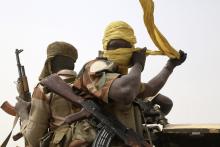
Boko Haram’s leader has pledged allegiance to the Islamic State in a new audio message, according to a group that monitors extremist activity.
In the recording, a man claiming to be Abubakar Shekau, leader of the Nigerian terrorist group that has killed thousands, vowed to follow Islamic State leader Abu Bakr al-Baghdadi, the U.S.-based SITE Intel Group, announced on March 7.
“We announce our allegiance to the Caliph of the Muslims … and will hear and obey in times of difficulty and prosperity, in hardship and ease, and to endure being discriminated against, and not to dispute about rule with those in power, except in case of evident infidelity regarding that which there is a proof from Allah,” Shekau said in a tweeted message that went along with the video, according to the Associated Press. Al-Baghdadi is the self-proclaimed head of the caliphate.
Flashpoint Intelligence, a global security firm, confirmed the recording to NBC News and said it was posted on Boko Haram social media accounts. USA Today was not able to independently verify the message.

THE SENATE Intelligence Committee finally released in December its long-delayed report on “enhanced interrogation techniques” employed by the CIA in the U.S. global “war on terrorism.” That these techniques—including waterboarding, “rectal feeding,” weeklong sleep deprivation, threats to harm detainees’ children—constituted torture, in clear violation of the Geneva Conventions, is a reality that is difficult to deny. Sen. Dianne Feinstein and her colleagues should be commended for facing and exposing the grim truths behind our nation’s post-9/11 conduct.
Unfortunately, recent polling has revealed some disturbing attitudes among Americans on this issue—particularly among Christians. A Washington Post/ ABC News poll conducted shortly after the Senate report’s release found that 59 percent of Americans believe the CIA’s treatment of suspected terrorists was justified, compared to just 31 percent who believe it was unjustified. Startlingly, among Christians who were polled, that number rises to between 66 percent and 75 percent who believe the techniques were justified. In this same poll, 53 percent of respondents indicated they believe these techniques produced important information that could not have been obtained any other way, compared to just 31 percent who disagree.



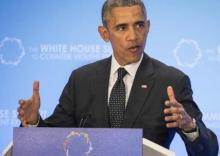
President Obama said Feb. 19 that governments across the globe are obligated to confront the “warped ideologies” that lead to terrorism, “especially their attempt to use Islam to justify their violence.”
National leaders must also dispute claims that there is a clash of civilizations in the world, the president said during a second-day speech at the White House Summit on Confronting Violent Extremism.
“The notion that the West is at war with Islam is an ugly lie,” Obama said. “And all of us, regardless of our faith, have a responsibility to reject it.”
Obama also addressed summit delegates on Feb. 18 in a session devoted to discussing how local communities can help dissuade young people from following the path of violent extremism.

As my kids have grown into teenagers, their behavior has changed. My daughter is less interested in hanging out with me and prefers sitting in her room glued to her computer. My son plays Nintendo war games. When current events are discussed in our home, we sometimes disagree vehemently. According to Homeland Security adviser Lisa Monaco, I should be on my guard because these might be signs that my kids are about to head off to join the Islamic State.
Sounds absurd, right? But that’s the message to Muslim communities as part of the administration’s initiative to “counter violent extremism.”
In September, the Justice Department announced it was launching the program and piloting it in Boston, Los Angeles and Minneapolis. The stated aim was to bring together community, religious leaders, and law enforcement to “develop comprehensive local strategies and share information on best practices” for countering violent extremism. Although the initiative doesn’t mention the word “Muslim,” those adherents are clearly the targets. The secretary of the Department of Homeland Security has promoted it to Muslim communities across the country. It has the support of the White House, which is hosting a summit on the topic this week.
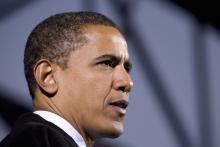
President Obama said Feb. 19 he doesn’t use terms like Islamic extremism because doing so would promote the false idea of a Western war with Islam, which would help extremists recruit more terrorists.
“No religion is responsible for terrorism — people are responsible for violence and terrorism,” Obama told delegates at the White House Summit on Countering Violent Extremism.
Obama also said military force alone will not defeat terrorism, and the nation must work with local communities to reduce the influence of those who advocate violent extremism.
“They are not religious leaders,” Obama said. “They are terrorists.”
He also said: “We are not at war with Islam — we are at war with people who have perverted Islam.”
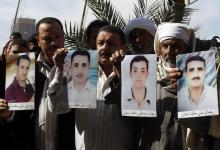
Pope Francis on Feb. 16 denounced the brutal slayings of 21 Coptic Christians in Libya by militants linked to the Islamic State, saying “they were assassinated just for being Christian.”
“The blood of our Christian brothers is a witness that cries out,” Francis said in off-the-cuff remarks during an audience with an ecumenical delegation from the Church of Scotland.
The pope, switching to his native Spanish, noted that those killed only said “Jesus help me.”
“Be they Catholic, Orthodox, Copts, Lutherans, it doesn’t matter: They’re Christian! The blood is the same: It is the blood which confesses Christ,” Francis said.
He said their deaths bore witness to “an ecumenism of blood” that should unite Christians, a phrase he has used repeatedly as the Islamic State continues its bloody march.

For the Obama administration and the Bush administration before it, drone strikes kill terrorists before terrorists can kill innocents, and the strikes keep American soldiers out of harm’s way.
But for a group of faith leaders, drones are a crude tool of death that make killing as easy as shooting a video game villain, and they put innocents in harm’s way.
These religious critics — 150 ministers, priests, imams, rabbis, and other faith leaders who gathered at the Interfaith Conference on Drone Warfare at Princeton Theological Seminary in late January — have spent the weeks since drafting a statement that calls on the U.S. to halt targeted lethal drone strikes.
“There are enough problems with the current drone policy and the use of drones that we need a break,” said the Rev. Richard Killmer, director of the conference. “Drones have become a weapon of first resort and not last resort. It has made it a lot easier to go to war.”

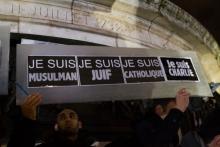
Our first response to the horrible and frightening violence of Paris should be grief. False religion always makes the religious grieve, but when it engages in ghastly violence against other human beings who are made in God’s image, it should break our hearts as it breaks God’s.
These hateful terrorists, masquerading as religious believers, said on video they were the “avengers” of the prophet Mohamed. As such, they murdered cartoonists in the office of a magazine they identified with blasphemy. What these killers, and those like them, don’t understand is that they are the real blasphemers now by forcing their false and murderous distortions of Islam on the world and on other children of God. Their religion is now violence itself, a blasphemous interpretation of Islam, which in its truest expression is a religion of peace. Rev. Wes Granberg-Michaelson, from the Reformed Church in America, has called Paris an “identity theft” of the Muslim faith. Several Muslim leaders have said that the damage terrorists like these do to the image of the Prophet Mohammed is much greater than any cartoonist could ever do.
While the tenet of freedom of speech has been invoked throughout the media coverage of the attacks, the religious implications here run much deeper. They are about how we in the faith community should respond when we are attacked by those who disdain us, disrespect us, distort us — as many believe the satirical French magazine, Charlie Hebdo regularly did — and even viciously attack us. The magazine has often crudely, provocatively, and even gleefully satirized all religions in very offensive ways, suggesting that the fundamentalisms in all our religious traditions completely define the meaning of faith. Charlie Hebdo is apparently driven by its own ideology of secular fundamentalism, which regularly strikes out at all people of faith.